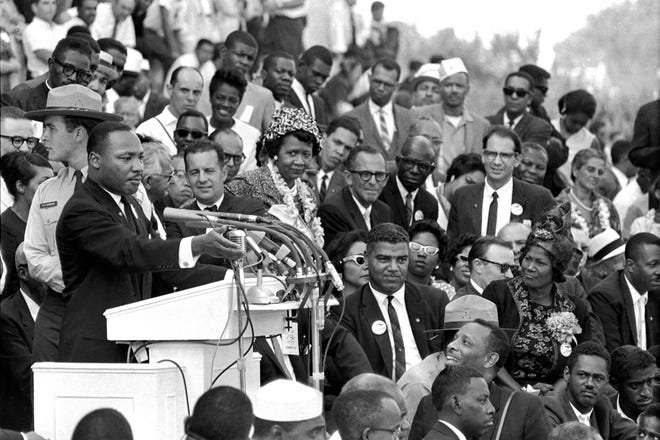Florida
Chaplain’s assumptions run wild in a true Good Samaritan moment

Last month, I treated my daughter Brittney to lunch at Shawarma Planet, a popular Syrian restaurant in a South Sacramento’s urban storefront.
From behind the counter, the owner took our order for a lamb gyro, then went back to prepare our food. The dining room was empty, so we dawdled a moment to ogle the amazing baklava display case.
Just then the door opened, and a man quietly slipped in behind us.
“Don’t move,” the stranger told Brittney. “And don’t panic,” he whispered.
“How could I not panic?” I thought.
We were alone with a “whispering mugger.”
I cautiously turned my head so I could describe him for the police sketch artist later: “Light-complexioned African-American Male, 5’6”, average build, wearing athletic sweatpants and a jogging jacket.”
For a moment, I asked myself if I was assuming him to be a robber because he was Black.
No, I decided. I don’t see color. I’m not prejudiced. That’s not me. I follow Martin Luther King Jr., who said people should “not be judged by the color of their skin but by the content of their character.”
Dana Brownlee, senior contributor at Forbes, highlights a problem with quoting the “I Have a Dream” speech to prove you “don’t see color.” She says “it’s like right-handed people saying they don’t notice the trouble that left-handed people have with can openers, zippers, and car cup holders.”
Brownlee says people of color hear three things when white people say “I don’t see color”:
- “Thank goodness I don’t have to think about race.”
- “Please give me credit for not being racist.”
- “I plan to do absolutely nothing to combat racism because I don’t see it.”
Suddenly, in this 70% non-white neighborhood, I was definitely seeing color. With a local crime rate, 167% above the national average, I was taking notes about color. I felt sure I’d be the one — the 1 in 13 people who become crime victims in South Sacramento.
Expecting the man to demand my money or my life, I began to imagine how my newspapers might headline my story: “Brave Columnist is Wounded Saving Daughter from Armed Bandit.”
Or perhaps reported with deft alliteration: “Clever Clergy Converts Culprit to Christ.”

It was just then that the man interrupted my racially motivated Walter Mitty moment, to say, “It’s OK, I’ve got this. Just don’t move.”
I was now hearing what I’d missed. His command wasn’t threatening, it was calmly reassuring.
“Ma’am,” he told Brittney. “There’s a wasp settled into your coat hood and I’m going to try to remove it.”
With that, he took a piece of cardboard and somehow managed to coax the little creature onto it.
With the threat removed, my daughter and I gushed with gratitude.
Yet the man still wasn’t done amazing us.
He slow-walked the little stinger toward the door, but the now flightless Hymenoptera fell off short of the exit, likely approaching his 22-day average on this earth.
If I had been the rescuer — and I assure you, it would not have been me — I’d have neutralized the threat by stepping on it.
But not this man.
With uncommon gentleness toward a living thing, he scooped it back up and set it safely outside the door.
Now, instead of a heroic headline, my editors are probably considering “Cowardly Chaplain Cowers while Stranger Removes Threat.”
But fortunately, I’m writing this story.
So I’ll emphasize how I paid the man’s pick-up order for him and his wife, and conclude with “Grateful Chaplain Covers Meal Cost of Good Samaritan.”
Just so you know, sometimes our assumptions can really cost us — four meals, tip and tax: $85.52.
Norris Burkes’ books are available for purchase on his website, www.thechaplain.net Send comments to comment@thechaplain.net or 10556 Combie Rd. Suite 6643 Auburn, CA 95602 or via voicemail: 843-608-9715.













You must be logged in to post a comment Login